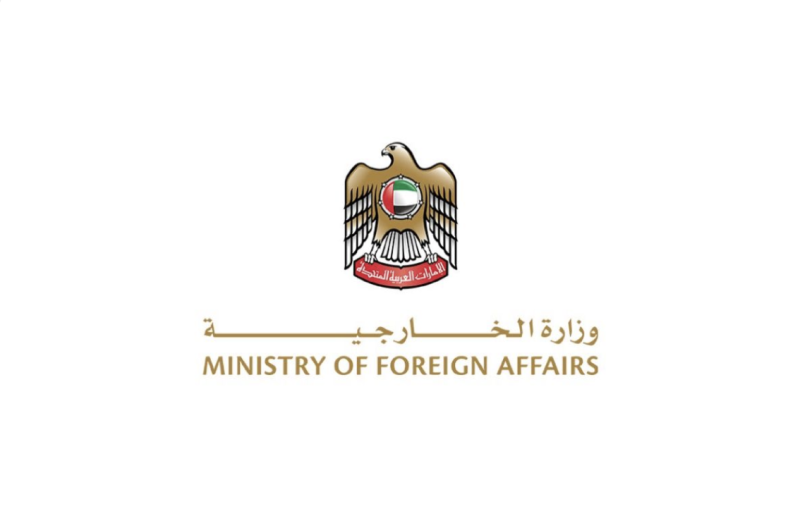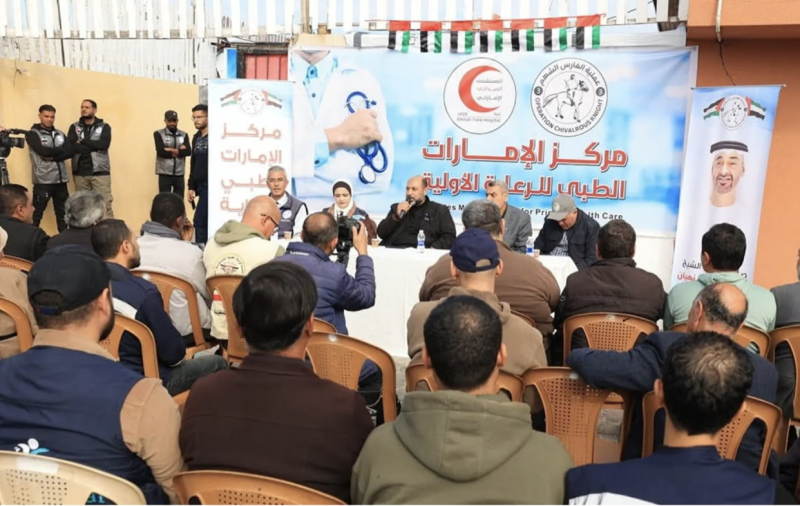MBZ Visits Washington: Washington views the UAE as an important strategic partner on a variety of regional and global challenges, Washington Institute


YOL-Washington
UAE President Mohammed bin Zayed Al Nahyan arrives in Washington, D.C., on September 23, 2024, for an official visit to the United States—his first since 2017 and the first-ever White House meeting of a sitting Emirati president. As such, the visit is a historic event for bilateral relations between the two countries, but the significance of the discussions themselves will depend on how the two partners address a range of sensitive bilateral issues at a time of regional crises on several fronts.
The United States now views the UAE as an important strategic partner in addressing a range of regional and global challenges, the report added. The strong ties between the two countries include a mutually beneficial economic relationship, strong defense cooperation, and key diplomatic initiatives.
According to the report of Washigton Instiute, the Emirati leader will likely focus on the future of bilateral economic and technological integration, but discussions will also cover sensitive matters such as great-power concerns over China and Russia, regional nuclear proliferation, and a potential role for his country in postwar Gaza.
The Persian Gulf federation of seven statelets has become a world-class player over the years by virtue of its huge oil wealth and the leadership style of Sheikh Muhammad (widely known as MbZ). This status is astonishing given that the country gained independence just five decades ago and has an estimated population of only 10 million people, around 90 percent of whom are expatriate workers. MbZ is both the ruler of Abu Dhabi (the emirate that contains most of the UAE’s oil) and president of the federation—titles he gained in 2022 when his elder half-brother Khalifa died.
Originally, the main factor driving the two partners closer together was geography—the UAE lies just across the Gulf from Iran. Today, however, Washington views the UAE as an important strategic partner on a variety of regional and global challenges. Their strong links include a mutually beneficial economic relationship, robust defense cooperation, and major diplomatic initiatives.
On the economic front, the UAE is the top importer of U.S. goods in the Middle East, reaching $24.8 billion in 2023 and continuing to rise this year. On the defense front, it hosts a major U.S. military presence at bases such as al-Dhafra, where around 5,000 American personnel are stationed with assets related to refueling, reconnaissance, and other capabilities. The UAE is also a seasoned military partner that has participated in U.S.-led coalitions focused on Afghanistan, the Balkans, Kuwait, Libya, and the Islamic State—all of which helped solidify bilateral security ties.
Regarding key U.S. policy initiatives in the region, the UAE is a founding member of the Abraham Accords, making the bold decision to normalize relations with Israel and maintain diplomatic and commercial ties despite the ongoing war in the Gaza Strip. It is also a critical node in Washington’s efforts to establish an integrated air and missile defense capability in the Middle East—though it did not publicly claim a role in preventing Iranian and proxy missiles and drones from hitting Israel during an unprecedented direct attack on April 13. Indeed, Emirati and American officials agree that Iran is a destabilizing force in the region but have recently diverged on how best to address this threat. Since 2019, the UAE has focused on defusing tensions via back-door conversations with Tehran in order to quell the regime’s attacks and provocations.
Other bilateral differences date back to when Biden was vice president, including disagreements over the Arab Spring protests and the 2015 nuclear deal with Iran (which the administration negotiated without consulting its Gulf partners). The UAE has also long feared that the United States will minimize its commitments in the Middle East as it rebalances toward the Indo-Pacific. For its part, Washington views many Emirati policy preferences as counterproductive—from its resistance to enforcing sanctions on Iran and Russia, to its role in initiating the past Gulf rift with Qatar.
The bilateral strain intensified in January 2022, when Houthi forces attacked Abu Dhabi with missiles and drones in response to Emirati-backed militia gains during the war in Yemen. The Emiratis viewed the U.S. response as insufficient, despite the Biden administration sending a naval destroyer and flight squadron to the UAE to deter further attacks.
The administration has also repeatedly warned Abu Dhabi about certain aspects of its relationship with China. In the last hours of the Trump administration in January 2021, agreement was reached to sell F-35 fighter jets and MQ-9 Reaper drones to the UAE. Although the MQ-9 sale is still active, the F-35 deal stalled after reports emerged that a Chinese military facility was being built in the UAE. U.S. officials are also wary of Beijing’s influence over Emirati technology companies, as seen when the firm G42 faced intense scrutiny over its extensive ties to China and potential threats to proprietary U.S. information. According to the company, it has since divested from China—though to what extent is debated—and announced a $1.5 billion deal with Microsoft that includes a chair on its board for a Microsoft executive and a series of artificial intelligence initiatives.
MbZ’s trip will provide an opportunity for him and Biden to dispel the above tensions and deliver a few quick wins to cap off the latter’s presidency. It is also a chance to further develop his ties with Vice President Harris, whom he first met when she led the U.S. delegation to offer condolences for his brother’s death, and again at the COP28 climate conference hosted by the UAE in late 2023. A meeting with former president Trump seems likely as well, though it has yet to be confirmed as of this writing. By timing the visit just six weeks before the U.S. election, MbZ likely seeks to hedge his bets and set his country up for success regardless of who wins the White House and Congress in November.
The public agenda for the meeting, as outlined by the U.S.-UAE Business Council, emphasizes energy, health, AI, space, and defense. The Emiratis are eager to transform the partnership from one rooted in defense and security cooperation to one based primarily on economic and technological integration. Deliverables will likely include an emphasis on G42’s alleged turn from China and its new deal with Microsoft, other technological cooperation that furthers the UAE’s desire to be a digital technology leader in the region, and further implementation of economic initiatives such as the India-Middle East-Europe Economic Corridor (IMEC).
Abu Dhabi has also just commissioned the fourth and final power reactor in its first civil nuclear complex, putting the country well on its way to meeting the goals set by COP28. Relatedly, the visit will surely include discussion of the UAE’s “123 commitment” not to enrich or reprocess nuclear material. MbZ may hope to assess whether a side agreement—similar to the civil nuclear accord reportedly being discussed on the margins of U.S.-Saudi talks regarding a potential defense deal—could enable the UAE to break its 123 commitment if other regional countries develop military nuclear capacities (most notably Iran).
Other security issues likely to come up include the role of Emirati firms in providing Russia with sanctioned dual-use items that facilitate the war on Ukraine. Washington also hopes it can influence Emirati messaging to Tehran in order to curb ongoing attacks by Iranian proxies in Yemen, Iraq, Syria, and elsewhere. Moreover, John Kirby specifically mentioned the UAE’s problematic role in Sudan when he announced MbZ’s visit. Discussions on that point could prove challenging—Washington has taken issue with Abu Dhabi backing Mohamed “Hemedti” Dagalo’s Rapid Support Forces against the government, but the UAE publicly denies supplying arms to the RSF.
Conversely, the UAE has long sought deeper regional security assurances from the United States. Previous discussions on a bilateral strategic framework agreement stalled, but MbZ will likely raise the issue again given the brewing U.S. defense treaty with the Saudis. Officials might also renew the F-35 discussion, despite reports to the contrary.
Regarding the Gaza war, MbZ will presumably raise the possibility of the UAE playing a role inside the Strip after combat ceases and Israeli forces leave. The UAE is the only country that has publicly stated a willingness to put forces on the ground there as part of a multinational stabilization force—provided a ceasefire is reached and the United States agrees to take the lead on resuming movement toward establishing a Palestinian state. On September 14, MbZ’s brother, Foreign Minister Abdullah bin Zayed, went further by stating that the UAE would not play any “day after” role in Gaza unless a Palestinian state is established. For its part, the Biden administration is signaling that a ceasefire is unlikely at this time, so any discussions of Gaza next week will likely focus on the current state of the conflict and what the UAE has put on the table thus far.
Given Washington’s various strains with the UAE over the course of his administration, President Biden’s decision to host MbZ in the Oval Office signals his desire to embrace the partnership and cement areas of cooperation and mutual benefit. Washington’s likely “asks” are easy to guess: the administration wants Abu Dhabi to back up its statements about technological separation from China, give more reassurances that it is protecting U.S. defense know-how, and provide support for “day after” planning in Gaza. What the UAE wants from the United States is harder to anticipate, though MbZ will presumably seek deeper regional security assurances, as well as continued pressure on Israel to minimize civilian casualties in Gaza and ensure access to humanitarian assistance.
Simon Henderson is the Baker Senior Fellow at The Washington Institute and director of its Bernstein Program on Gulf and Energy Policy. Elizabeth Dent is a senior fellow at the Institute and former director for the Gulf and Arabian Peninsula at the Pentagon.

Abu Dhabi -- His Highness Sheikh Abdullah bin Zayed Al Nahyan, Deputy Prime Minister and Minister of Foreign Affairs, has welcomed the statements b…

Abu Dhabi -- The UAE’s humanitarian Operation Chivalrous Knight 3 continues to implement urgent relief interventions in the Gaza Strip in res…

Abu Dhabi -- The UAE has inaugurated the Emirates Medical Centre in Khan Younis, south of the Gaza Strip, as part of the Operation Chivalrous Knigh…